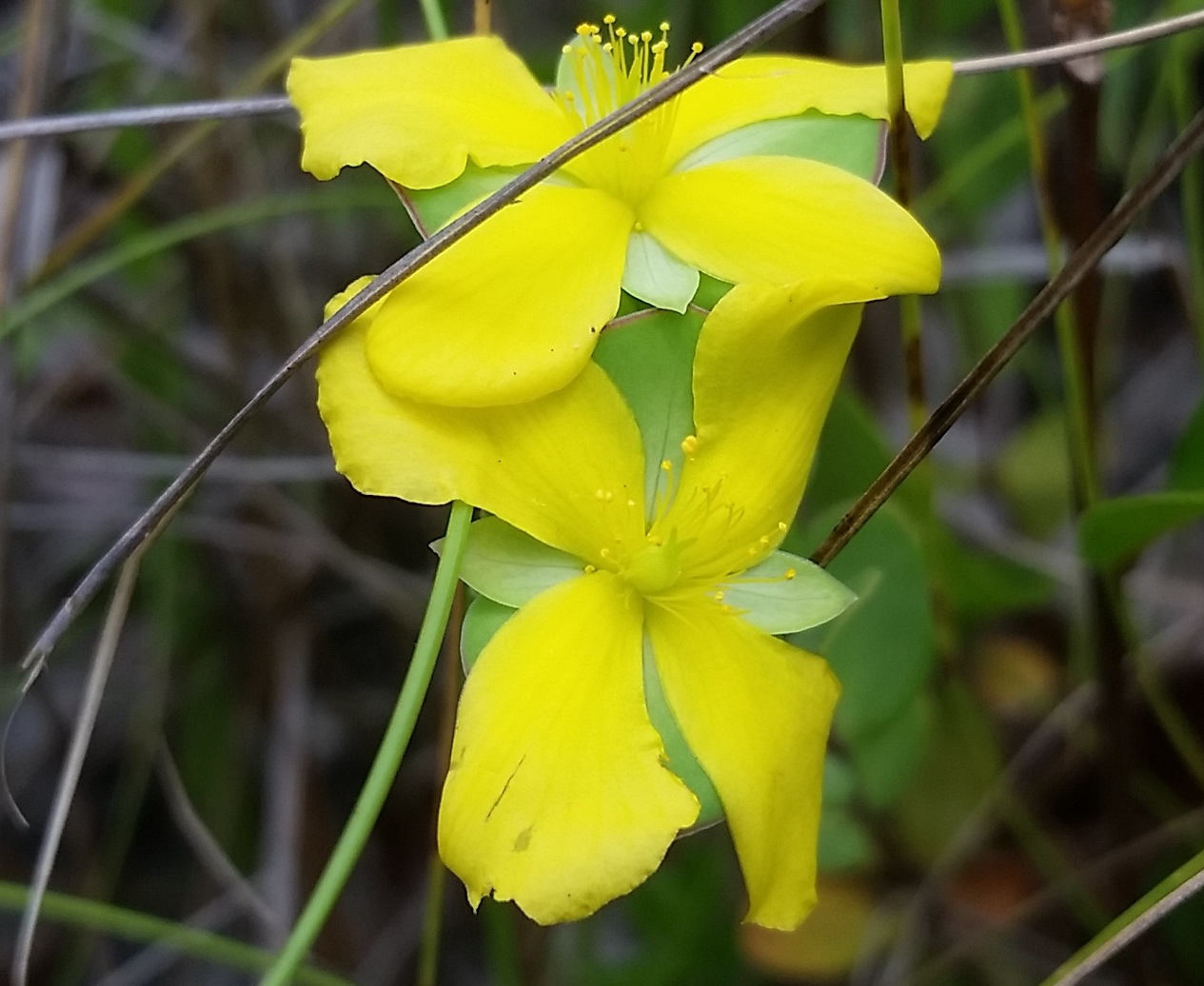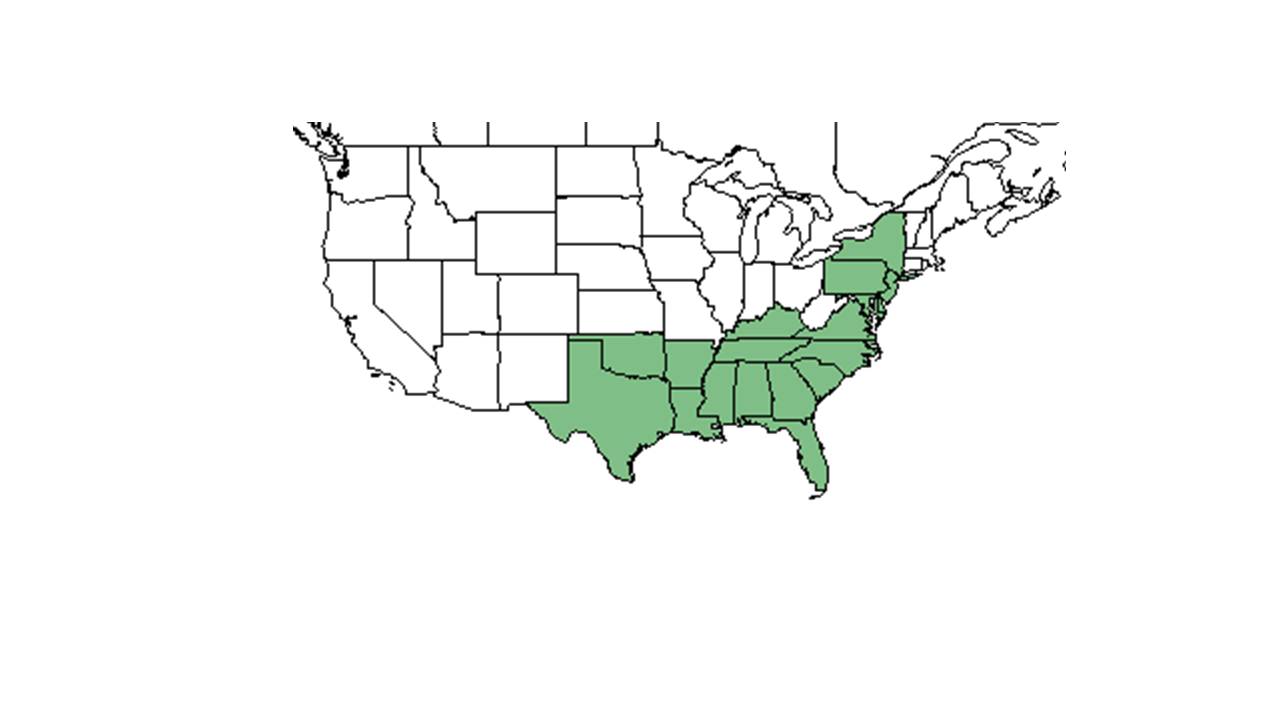Difference between revisions of "Hypericum crux-andreae"
KatieMccoy (talk | contribs) |
|||
| Line 28: | Line 28: | ||
==Ecology== | ==Ecology== | ||
===Habitat=== <!--Natural communities, human disturbed habitats, topography, hydrology, soils, light, fire regime requirements for removal of competition, etc.--> | ===Habitat=== <!--Natural communities, human disturbed habitats, topography, hydrology, soils, light, fire regime requirements for removal of competition, etc.--> | ||
| − | It is found in longleaf pine-wiregrass flatwoods<ref>Brockway, D. G. and C. E. Lewis (1997). "Long-term effects of dormant-season prescribed fire on plant community diversity, structure and productivity in a longleaf pine wiregrass ecosystem." Forest Ecology and Management 96: 167-183.</ref> and titi-cypress swamp communities in Florida.<ref>Drewa, P., W. Platt, et al. (2002). "Community Structure along Elevation Gradients in Headwater Regions of Longleaf Pine Savannas." Plant Ecology 160(1): 61-78.</ref> It can also occur in some disturbed habitat like fallow fields (FSU Herbarium). | + | It is found in longleaf pine-wiregrass flatwoods<ref>Brockway, D. G. and C. E. Lewis (1997). "Long-term effects of dormant-season prescribed fire on plant community diversity, structure and productivity in a longleaf pine wiregrass ecosystem." Forest Ecology and Management 96: 167-183.</ref> and titi-cypress swamp communities in Florida.<ref>Drewa, P., W. Platt, et al. (2002). "Community Structure along Elevation Gradients in Headwater Regions of Longleaf Pine Savannas." Plant Ecology 160(1): 61-78.</ref> It can also occur in some disturbed habitat like fallow fields (FSU Herbarium). Associated species include ''Andropogon, Pinus palutris, Aristida stricta, Cyrilla racemiflora, Salix humilis, Cephalanthus occidentalis, Saccharum sp., Dichanthelium scoparium, Smilax rotundifolia, Proserpinaca pectinata,'' and ''Hypericum brachyphyllum'' (FSU Herbarium). |
===Phenology=== <!--Timing off flowering, fruiting, seed dispersal, and environmental triggers. Cite PanFlora website if appropriate: http://www.gilnelson.com/PanFlora/ --> | ===Phenology=== <!--Timing off flowering, fruiting, seed dispersal, and environmental triggers. Cite PanFlora website if appropriate: http://www.gilnelson.com/PanFlora/ --> | ||
Revision as of 15:33, 14 December 2015
| Hypericum crux-andreae | |
|---|---|

| |
| Photo taken by Michelle Smith | |
| Scientific classification | |
| Kingdom: | Plantae |
| Division: | Magnoliophyta - Flowering plants |
| Class: | Magnoliopsida – Dicotyledons |
| Order: | Theales |
| Family: | Clusiaceae ⁄ Guttiferae |
| Genus: | Hypericum |
| Species: | H. crux-andreae |
| Binomial name | |
| Hypericum crux-andreae (L.) Crantz | |

| |
| Natural range of Hypericum crux-andreae from USDA NRCS Plants Database. | |
Common name: St. Peterswort
Contents
Taxonomic notes
Description
Hypericum crux-andreae is a perennial shrub.
Distribution
Ecology
Habitat
It is found in longleaf pine-wiregrass flatwoods[1] and titi-cypress swamp communities in Florida.[2] It can also occur in some disturbed habitat like fallow fields (FSU Herbarium). Associated species include Andropogon, Pinus palutris, Aristida stricta, Cyrilla racemiflora, Salix humilis, Cephalanthus occidentalis, Saccharum sp., Dichanthelium scoparium, Smilax rotundifolia, Proserpinaca pectinata, and Hypericum brachyphyllum (FSU Herbarium).
Phenology
Flowering has been observed in August through October, and fruiting has been observed in October (FSU Herbarium).
Seed dispersal
Seed bank and germination
Several short-lived perennial forbs also have a seed bank persistent for at least several years.[3]
Fire ecology
This species has been found in habitat that burns frequently (FSU Herbarium).
Pollination
Use by animals
Diseases and parasites
Conservation and Management
Cultivation and restoration
Photo Gallery
References and notes
Florida State University Robert K. Godfrey Herbarium database. URL: http://herbarium.bio.fsu.edu. Last accessed: June 2014. Collectors: Loran C. Anderson, Wilson Baker, Andre F. Clewell, M. Davis, R. F. Doren, Robert K. Godfrey, Ann F. Johnson, J. M. Kane, R. A. Norris, and Cecil R. Slaughter. States and Counties: Florida: Duval, Franklin, Jackson, Leon, Liberty, and Wakulla. Georgia: Baker, Grady, and Thomas. Texas: Hardin.
- ↑ Brockway, D. G. and C. E. Lewis (1997). "Long-term effects of dormant-season prescribed fire on plant community diversity, structure and productivity in a longleaf pine wiregrass ecosystem." Forest Ecology and Management 96: 167-183.
- ↑ Drewa, P., W. Platt, et al. (2002). "Community Structure along Elevation Gradients in Headwater Regions of Longleaf Pine Savannas." Plant Ecology 160(1): 61-78.
- ↑ Platt, W. J., S. M. Carr, et al. (2006). "Pine savanna overstorey influences on ground-cover biodiversity." Applied Vegetation Science 9: 37-50.